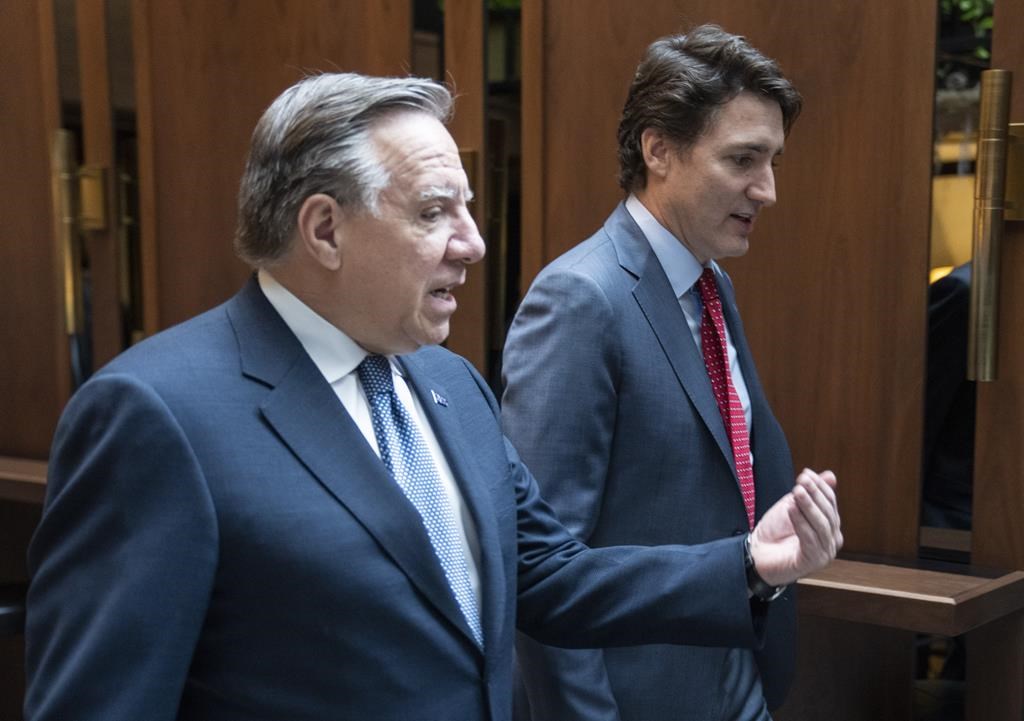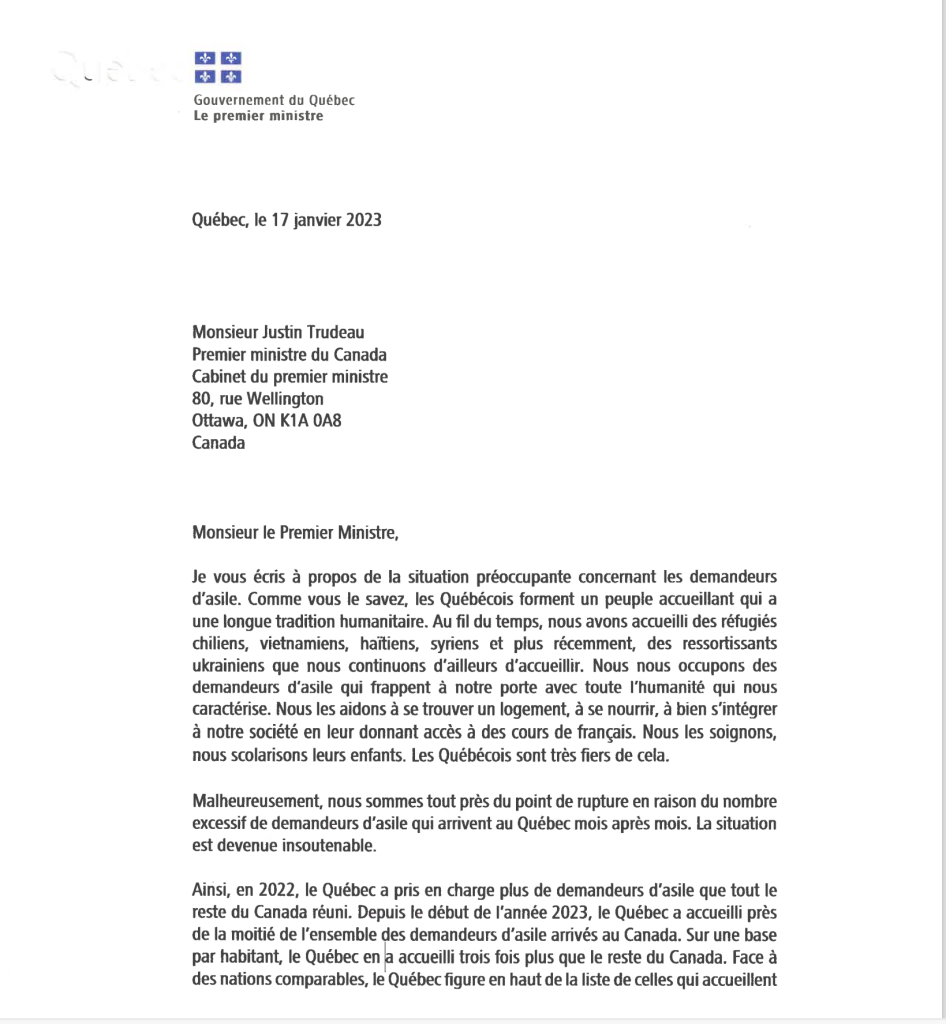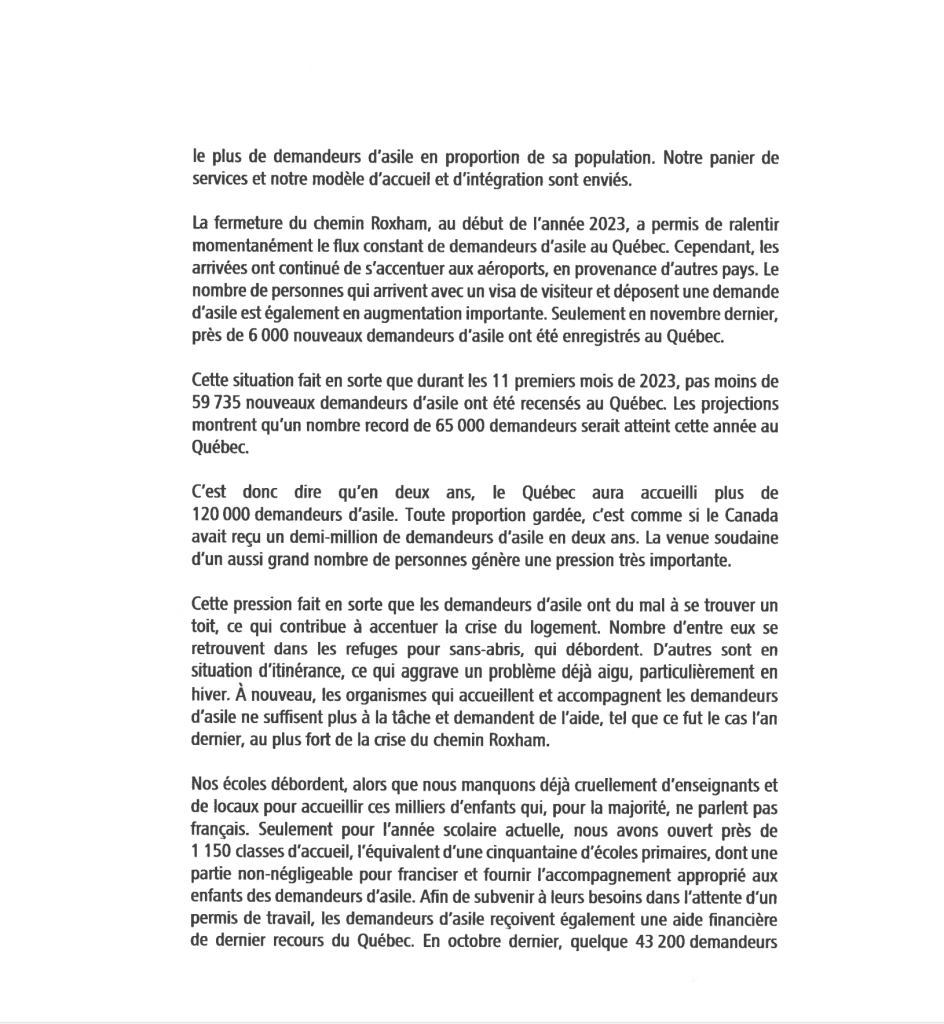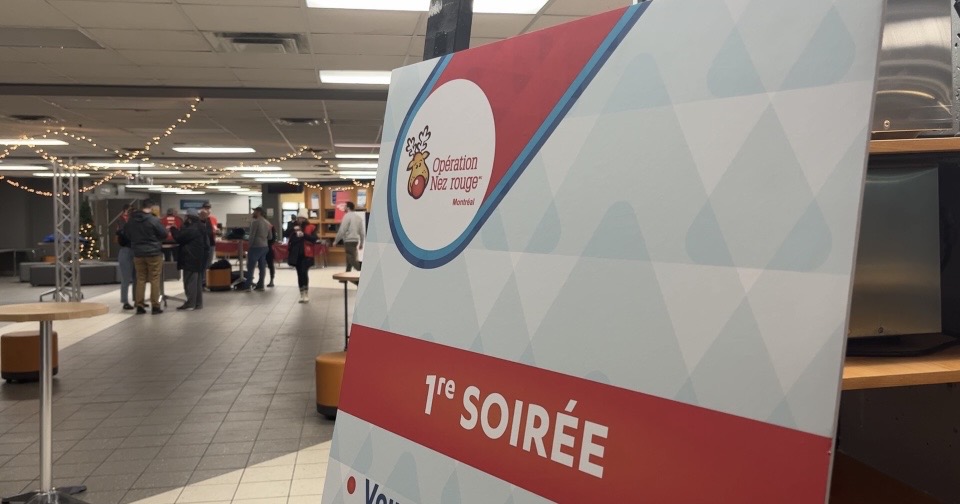‘Breaking point’: Legault asks Trudeau to slow influx of asylum seekers

Posted January 18, 2024 9:58 am.
Last Updated January 18, 2024 6:23 pm.
Quebec Premier François Legault is asking Prime Minister Justin Trudeau to reduce the influx of asylum seekers because Quebec is reaching a “breaking point”.
Legault made his request in an official letter to Trudeau sent Wednesday afternoon, a copy of which was obtained by The Canadian Press – and sent to media, including CityNews on Thursday morning.
“We are very close to the breaking point because of the excessive number of asylum seekers arriving in Quebec month after month. The situation has become unsustainable,” Legault wrote.
He explained that in 2022, Quebec took in more asylum seekers than all the rest of Canada together.
The closure of Roxham Road in 2023 “momentarily” slowed the flow, he said.
“However, arrivals have continued to increase at the airports. The number of people arriving on visitor visas and making asylum claims is also up significantly.”
For advocates and those working with asylum seekers, like Frantz André of the Action Committee for People without Status, this isn’t a surprise.
“We’ve been telling Mr. Legault or Mr. Trudeau what they’ve done to Roxham Road that down the road we’re going to be paying the price and we are paying the price right now,” he said.
“Mr. Legault needs to remember he’s the one who insisted to have Roxham Road closed, but now what he was not expecting, he’s having a very big influx with people coming with tourist visas.”
In 2023, nearly 60,000 new asylum seekers were registered in Quebec within the first 11 months, which has put “very significant pressure” on services, according to Legault.
“Asylum seekers are having trouble finding a place to live, which is exacerbating the housing crisis. Many of them end up in homeless shelters, which are overflowing,” the letter says. “Others are homeless, which exacerbates an already acute problem, particularly in winter. Once again, the organizations that welcome and support asylum seekers are no longer up to the task.”
The premier described how the schools are overflowing, and there is currently a shortage of teachers to accommodate children who don’t speak French.
“I do understand it’s putting a weight on the social aspect, financial aspect, education, health and so on but those are problems that were there way before,” said André.
Legault pointed out that while waiting for a work permit, asylum seekers receive last-resort financial assistance from Quebec. Last October, around 43,200 asylum seekers received $33 million in aid.
He goes on to express concern about the growing number of Mexican nationals who are seeking asylum in Quebec.
“The possibility of entering Canada from Mexico without a visa certainly explains part of the influx of asylum seekers,” he said.



“The possibility of entering Canada from Mexico without a visa certainly explains part of the influx of asylum seekers,” he said.
“The airports, particularly in Toronto and Montreal, are becoming sieves and it is time to act,” he added.
It’s not the first time Legault has written to Trudeau on the issue. Last February, he told the prime minister in another letter that Quebec’s capacity to receive refugees had been greatly exceeded.
Legault is formally asking the federal government to tighten up its visa policy and warns that opened loopholes can be used by criminal groups which will pose serious security challenges for Quebec and Canada.
François Legault also insists on the “fair” distribution of asylum seekers across Canada, possibly by busing them to other provinces.
“They did last year and sent people without telling them,” André said. “They took them from shelters here in Quebec and sent them to Niagara Falls, Cornwall, where there was no organization, so people were left alone and with a lot of issues, and what happened was most people came back to Montreal on their own means.”
He expects the federal government to reimburse Quebec for the $470 million incurred in receiving asylum seekers in 2021 and 2022, and the same for years to come.
“Quebec is no longer in a position to receive a disproportionate share of asylum seekers entering Canada. This is an urgent matter of the utmost importance,” he concluded.
On Wednesday, Quebec Immigration Minister Christine Fréchette issued a similar warning in the media.
Fréchette reiterated that the arrival of tens of thousands of asylum seekers was bringing Quebec closer to a “tipping point”.
On Tuesday, at the Board of Trade of Metropolitan Montreal, Justin Trudeau had confirmed his intention to increase the annual number of immigrants to 500,000.
Trudeau said that he wanted to regain control over temporary immigration, more specifically foreign students and temporary workers, who he felt were having a greater impact on the housing crisis.
He also invited higher education institutions and businesses to find their own accommodation solutions for these temporary residents.
“We cannot give visas to people who come to our door and end up having them in the street,” André said.
Federal Minister of Public Safety ‘evaluating all possible measures’
Dominic LeBlanc, Minister of Public Safety, Democratic Institutions and Intergovernmental Affairs, issued a statement on Thursday, recognizing that “Quebec has generously welcomed tens of thousands of asylum seekers.”
LeBlanc says they are taking this request from the Quebec government seriously and will work with them “to find solutions to the challenges posed by the significant number of asylum seekers that Quebec receives.”
But LeBlanc did not commit to transferring asylum seekers elsewhere in the country. “We are evaluating all possible measures to allow asylum seekers to travel to other provinces if they wish to do so.”
The leader of the Parti Québécois was not impressed with Legault’s letter. Paul St-Pierre Plamondon called it a “symbolic” gesture and challenged Legault to demand full immigration powers from Ottawa.
“How can we get the two levels federal and provincial to sit down and talk about a real way to welcome people with dignity and respect?” asked André. “That is not happening.”
This report by The Canadian Press was first published Jan. 18, 2024.








